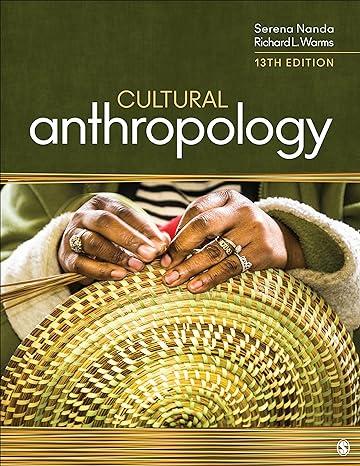The highly productive Asante economy was the basis of a complex social hierarchy ruled by the Asantehene,
Question:
The highly productive Asante economy was the basis of a complex social hierarchy ruled by the Asantehene, or king. The urban elite was mainly involved in transacting government business, performing elaborate state ceremonies, or producing luxury goods for the wealthy. The prodigious food requirements of Kumasi reflected the association of high social status and material well-being characteristic of elites in state societies. The Asantehene's household alone-his royal wives and children consumed large quantities of locally grown food daily, along with imported delicacies such as mutton, turkey, duck, wild game, rice, European biscuits, tea, sugar, and wine. Some of these were gifts from foreign visitors, which were reciprocated with local food supplies.
Asante society was composed of several social classes: alien slaves, peasant commoners living in outlying villages, urban specialists offering their services to the elite, government officials of various classes and positions, and, at the top of the hierarchy, the Asantehene himself, with his royal family. It was a dynamic social system, based on inheritance, achievement, competition, and accumulation of wealth, with widely different levels of material well-being and opportunities for social mobility.
Precolonial Asante used espionage, detention, fines, confiscation of property, exile, and execution to keep its people in line. However, like all successful states, it promoted a hegemonic ideology to support its social organization. At its core, this ideology linked wealth and power. The Ashanti believed that these went hand in hand and both benefited society. Accumulating wealth resulted in high office, and holding high office had to be justified by the accumulation and display of wealth.....
Questions
1. What were some of the local economic factors that enabled the Asante state to maintain its power?
2. What were some important global factors that both supported and undermined the power of the Asante state?
3. Compare the ideology of the relation between wealth and power in the Asante state with that of the United States.
Step by Step Answer:






